 System Tutorial
System Tutorial
 Windows Series
Windows Series
 Where can I download the iso image file of the pure version of win7?
Where can I download the iso image file of the pure version of win7?
Where can I download the iso image file of the pure version of win7?
When we are preparing to install the pure version of the win7 operating system on our computers, some friends do not know how to choose where to download the pure version of the system image file. So as far as the editor knows, we can perform relevant downloads on this website, and then install our system through auxiliary software. So let’s take a look at how the editor did it for the specific steps~


Where to download the win7 pure version iso image file
>>>win7 pure version image 32-bit download address
>>>win7 pure version image 64-bit download address
1. Unzip the win7 system iso image file
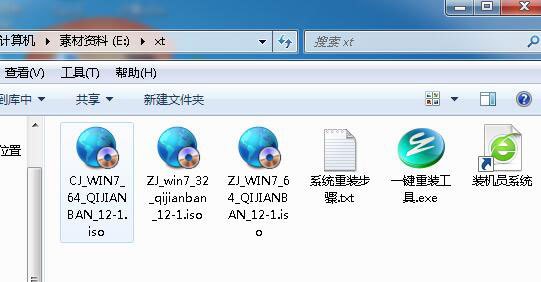
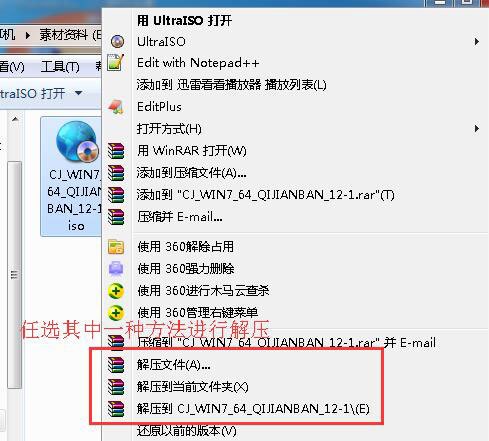
2. Open the one-click reinstallation tool
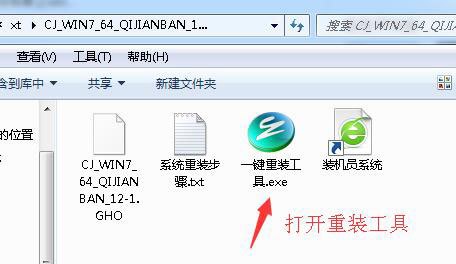
3. Confirm that the file name and the folder where the image file is placed cannot be named in Chinese, otherwise an error will be reported.
If there is a Chinese name, please change the folder name Change it to English or numbers
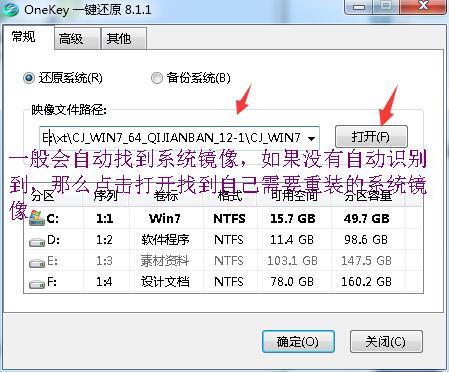
4. First click on the C drive, then click OK, and then a window will pop up.
The program will restore the remote partition to C drive, please select
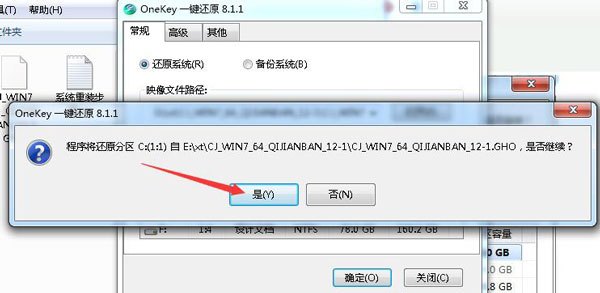
5. A small window will pop up asking if you want to restart immediately. Please select restart now to reinstall the computer system immediately. Mirror.
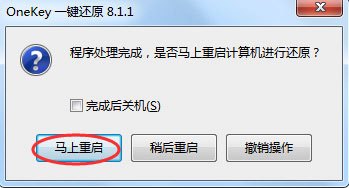
6. After that, you will enter the system reinstallation interface. Here we wait for the progress bar to reach 100%.
If it is in the middle If other pop-up windows appear, it is usually because the system image file is damaged. We can basically solve the problem by re-downloading the system image file or replacing it with another one.
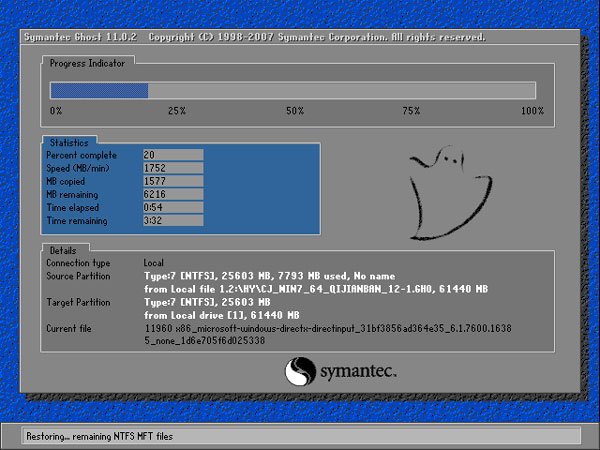
7. After that, you will enter the software and driver installation interface, and we wait for the installation to be completed.
8. After installing the driver and software, the system has been reinstalled.
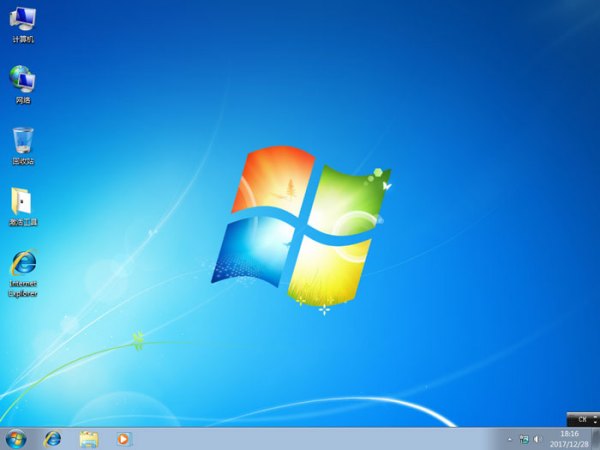
PS: Before installing the system, please confirm whether your C drive and desktop data have been properly saved.
Once the system is mirrored, The system C drive and desktop will be formatted
More iso file related information:
>>>How to make an iso boot disk in Chinese cabbage
>>>Iso file opening method sharing
The above is the detailed content of Where can I download the iso image file of the pure version of win7?. For more information, please follow other related articles on the PHP Chinese website!

Hot AI Tools

Undresser.AI Undress
AI-powered app for creating realistic nude photos

AI Clothes Remover
Online AI tool for removing clothes from photos.

Undress AI Tool
Undress images for free

Clothoff.io
AI clothes remover

Video Face Swap
Swap faces in any video effortlessly with our completely free AI face swap tool!

Hot Article

Hot Tools

Notepad++7.3.1
Easy-to-use and free code editor

SublimeText3 Chinese version
Chinese version, very easy to use

Zend Studio 13.0.1
Powerful PHP integrated development environment

Dreamweaver CS6
Visual web development tools

SublimeText3 Mac version
God-level code editing software (SublimeText3)

Hot Topics
 1387
1387
 52
52
 How to open iso file on mobile phone
Feb 24, 2024 pm 05:33 PM
How to open iso file on mobile phone
Feb 24, 2024 pm 05:33 PM
With the development of technology, more and more people are now starting to use ISO files. An ISO file is a format of a disc file that usually contains all the contents of the disc, including operating system, software, games, etc. Opening an ISO file on your computer is relatively simple, just use virtual optical drive software. However, when we want to open ISO files on our mobile phones, it may be more troublesome. Well, this article will introduce some methods for you to easily open ISO files on your phone. 1. Using the virtual optical drive application First, we can install
 How to decompress an iso file
Feb 19, 2024 pm 04:07 PM
How to decompress an iso file
Feb 19, 2024 pm 04:07 PM
An ISO file is a common disc image file format that is typically used to store the entire contents of a disc, including files and file systems. When we need to access the contents of the ISO file, we need to decompress it. This article will introduce several common methods to decompress ISO files. Decompression using a virtual optical drive This is one of the most common methods of decompressing ISO files. First, we need to install a virtual optical drive software, such as DAEMON Tools Lite, PowerISO, etc. Then, double-click the virtual optical drive software icon
 How to open Android ISO file
Feb 19, 2024 pm 11:17 PM
How to open Android ISO file
Feb 19, 2024 pm 11:17 PM
Title: How to open Android ISO files With the development of technology and the popularity of smartphones, more and more people are beginning to use mobile phones for various work and entertainment activities. There are two main operating systems used in mobile phones: Android and iOS. For Android systems, its applications usually exist in APK (AndroidPackageKit) format, while for iOS systems, they exist in IPA (iOSAppStorePackage) format. However, sometimes we can
 Where to download win7 professional version
Jan 11, 2024 pm 09:09 PM
Where to download win7 professional version
Jan 11, 2024 pm 09:09 PM
win7 has always been loved by everyone for its stability and good compatibility, but many friends don’t know where to download win7 professional version. Today, the editor brings the download method and download and installation steps. The specific solutions are as follows Let’s take a look. Recommended address for win7 professional version download and installation tutorial>>>>This site<<<Download link>>>>win7 professional version original iso<<<>>>New Radish Home GhostWin764-bit professional version v2019.07<<<The first installation tutorial Step: Click the download button in the download system (you can choose Thunder download, network disk download, Telecom
 Solution: How to download WeChat on win11 and add it to the desktop
Jan 02, 2024 pm 05:19 PM
Solution: How to download WeChat on win11 and add it to the desktop
Jan 02, 2024 pm 05:19 PM
Since WeChat is a commonly used software, many people want to install it on the desktop, but they find that the WeChat downloaded in win11 is not on the desktop. This may be because it is not installed or the desktop is not selected during installation. Solution to WeChat downloaded in win11 not on the desktop: 1. If you have not installed WeChat, run the installation program. 2. When installing, modify the installation path and click "Install" 3. After the installation is completed, it should automatically appear on the desktop. 4. If it still does not exist, then open the "Bottom Menu" 5. Search for "WeChat" on it 6. After searching, select "Open File Location" on the right 7. Then right-click the WeChat icon and select "Show More Options" 8. Finally, select "Send to" and click "Desktop Shortcut" to send WeChat
 How to solve the error code problem when downloading language packs in win11
Jan 01, 2024 pm 08:17 PM
How to solve the error code problem when downloading language packs in win11
Jan 01, 2024 pm 08:17 PM
When you try to add a new language pack to the Windows 11 operating system, you may occasionally encounter warning messages such as error code: 0x800f0950, etc., which hinders the progress of the language pack installation. What factors usually come from this unknown error message? And how to solve it? What should I do if there is an error code when downloading the language pack in win11? 1. The first step is to press the "Win+R" key combination on the keyboard at the same time to start the run function. , then enter the command: Regedit, and press the Enter key on the keyboard. 2. Open the Registry Editor and click \HKEY_LOCAL_MACHINE\SOFTWARE\Policies\Microsoft\WindowsDef
 How to make an iso file
Nov 22, 2023 am 10:05 AM
How to make an iso file
Nov 22, 2023 am 10:05 AM
How to make an iso file: 1. Prepare the source file; 2. Download and install the UltraISO software; 3. Start the UltraISO software; 4. Select the source file and add it; 5. Start making the ISO file; 6. Wait for the production to be completed. The process of making an ISO file may vary depending on different operating systems and hardware environments. If you encounter any problems during the production process, you can refer to the official documentation of the UltraISO software or seek technical support for help.
 u starts the installation without iso file
Feb 12, 2024 pm 11:00 PM
u starts the installation without iso file
Feb 12, 2024 pm 11:00 PM
Windows 1122H2 has been pushed for some time, and some friends must be eager to try it out. This article details how to install Windows 1122H2 on a USB flash drive to overcome TPM restrictions. I hope it will be helpful for everyone to install. Article Directory: Windows Version Division Several common solutions for installing Windows currently Ventoy installation and configuration on U disk (including methods to break through TPM) Windows Version Division: Although everyone has been using Windows for a long time, let’s briefly talk about how many versions of Windows 11 there are , which version you should download is a popular science. Several common solutions for installing Windows: install the WinPE system on the computer, and then



